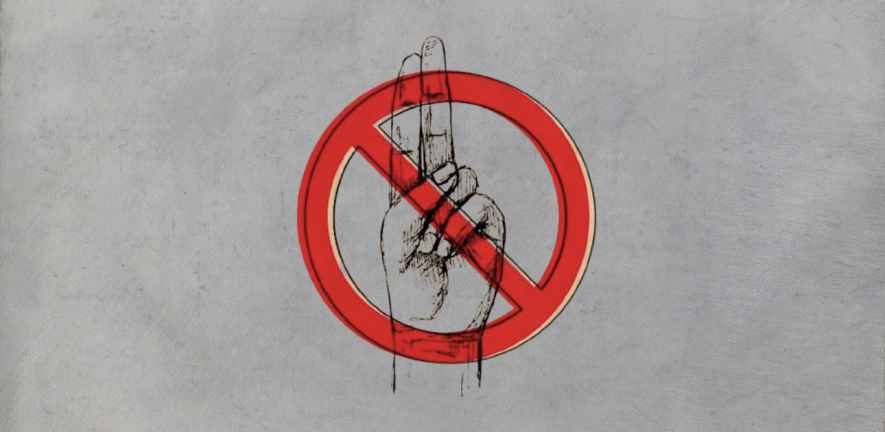The Two Finger Test: An Old Wine in a New Bottle

THE recent judgment of the Supreme Court in The State of Jharkhand versus Shailendra Kumar Rai @ Pandav Rai was in the news recently for deprecating the two-finger test. A bench of Justices Dr. D.Y. Chandrachud and Hima Kohli noted:
“While examining the victim, the Medical Board conducted what is known as the “two-finger test” to determine whether she was habituated to sexual intercourse. This Court has time and again deprecated the use of this regressive and invasive test in cases alleging rape and sexual assault. This so-called test has no scientific basis and neither proves nor disproves allegations of rape. It instead re-victimizes and re-traumatizes women who may have been sexually assaulted, and is an affront to their dignity.
“The “two-finger test” or pre vaginum test must not be conducted… the so-called test is based on the incorrect assumption that a sexually active woman cannot be raped. Nothing could be further from the truth – a woman’s sexual history is wholly immaterial while adjudicating whether the accused raped her. Further, the probative value of a woman’s testimony does not depend upon her sexual history. It is patriarchal and sexist to suggest that a woman cannot be believed when she states that she was raped, merely for the reason that she is sexually active.”
The court also directed the Union Government to
- “Ensure that the guidelines formulated by the Ministry of Health and Family Welfare are circulated to all government and private hospitals;
- Conduct workshops for health providers to communicate the appropriate procedure to be adopted while examining survivors of sexual assault and rape; and
- Review the curriculum in medical schools with a view to ensuring that the “two-finger test” or per vaginum examination is not prescribed as one of the procedures to be adopted while examining survivors of sexual assault and rape.”
The Supreme Court reaffirmed the principles that were already laid down by it in Lillu versus State of Haryana (2013) and codified in the Union Ministry of Health and Family Welfare’s 2014 Guidelines Medico-legal care for survivors/victims of sexual violence.
Also read: Hathras Rape Case: Three steps India should take to ensure that rape survivors actually get justice
The Lahore High Court in Pakistan had previously declared the test unconstitutional by relying on a series of judgments of the Supreme Court of India, the Gujarat High Court and the Allahabad High Court. The World Health Organization guidelines on medico-legal care for survivors of sexual assault also note that such examinations are rarely justified.
The two-finger test is an archaic 18th century forensic test where the examining physician notes the presence or absence of the hymen and the size and the so-called laxity of the vagina of the rape survivor. This is then used to comment about whether she is “habituated to sexual intercourse.”
The two-finger test is an archaic 18th century forensic test where the examining physician notes the presence or absence of the hymen and the size and the so-called laxity of the vagina of the rape survivor. This is then used to comment about whether she is “habituated to sexual intercourse.” Notably, the Indian Evidence Act, through Section 53A, makes it clear that the previous sexual history is irrelevant for the purposes of prosecution in sexual offences.
This test is not backed by science. Given the importance of forensic evidence in criminal trials, especially in offences of sexual nature, the evidence collected becomes vital in ensuring prosecution. It is well documented that the conviction rates are around 40 per cent in rape cases nationally. Notably though, a reply in the Lok Sabha by the Union Home Ministry noted that in some regions like Andaman and Nicobar Islands, Dadra and Nagar Haveli and Daman and Diu, Ladakh, Arunachal Pradesh and Sikkim, the conviction rate was 0 per cent.
Also read: Rights of sexual assault victims: How courts have deprecated the ‘two-finger’ test
Unconsented medical exams and bioethics
Doctors play an important role in not just counselling the survivor post the assault, but also collecting evidence, However, it is of utmost importance that the fact that the victim has gone through considerable trauma is not lost on them. A report by the international non-governmental organisation Human Rights Watch noted that doctors often cause significant trauma again by treating the victims in a medico-legal case like that of rape like a ‘walking, talking crime scene’.
However, survivors can seldom refuse such unconsented exams. The Human Rights Watch report noted that should a survivor refuse the treatment, she will be deemed un-cooperative by the police and her commitment to the investigation might be called into question. Noted legal scholar Pratixa Baxi writes that during the trial when such exams are discussed, the “prosecutorial body itself becomes a body of desire, inserting in talk about rape male fantasies to objectify and possess”.
There are major issues in such unconsented medical exams by doctors. Recent studies by The Yale Community Bioethics Centre on consented intimate exams in the United States carried out through a national survey have also found racial disparities in the administration of these exams. It would not be unjust to juxtapose this to India, and claim that religious minorities, and Dalit, Bahujan and Adivasi women would face greater risk of these unconsented exams.
Consent is a well-established principle of medical ethics now, common both in bioethical and legal literature. Lori Bruce, a bioethicist at Yale Interdisciplinary Centre for Bioethics also reminds us that the bodies in question belong to the patients. She goes a step further than what the Supreme Court holds in its judgments and argues that this moral harm might be egregious enough might meet the threshold to give liability for medical malpractice and even assault.
Also read: Medical Evidence in Rape Cases and Poor Court Outcomes
Systemic changes needed
It is not common for rape victims to be demonised— from the nymph, Daphne and the god, Apollo in Greek mythology to a modern survivor who might be being cross-examined in a trial court as we speak. It is well known that the bodies of rape victims and their sexual history often become a point of contention in rape trials, even though the law explicitly states otherwise.
Should a survivor refuse the treatment, she will be deemed un-cooperative by the police and her commitment to the investigation might be called into question.
A report in the British Medical Journal in 2014 written in the backdrop of the 2014 guidelines noted that, “These new guidelines are promising, but replacing the existing procedures in all hospitals will take time. Given that health is the responsibility of state governments, it is important that all new state guidelines match the standards set by the central government.”
Much water has flown under the bridge since the 2014 paper was written. However, little has changed. Judgments of the court re-affirm the same principles over and over again, but unless systemic changes are heralded in by the medical associations, by the courts, by the legislature and the executive, which must range from sensitisation to stringent prosecutions for such unwarranted and unconsented exams, these practices will continue unabated.
Get the latest reports & analysis with people's perspective on Protests, movements & deep analytical videos, discussions of the current affairs in your Telegram app. Subscribe to NewsClick's Telegram channel & get Real-Time updates on stories, as they get published on our website.
























